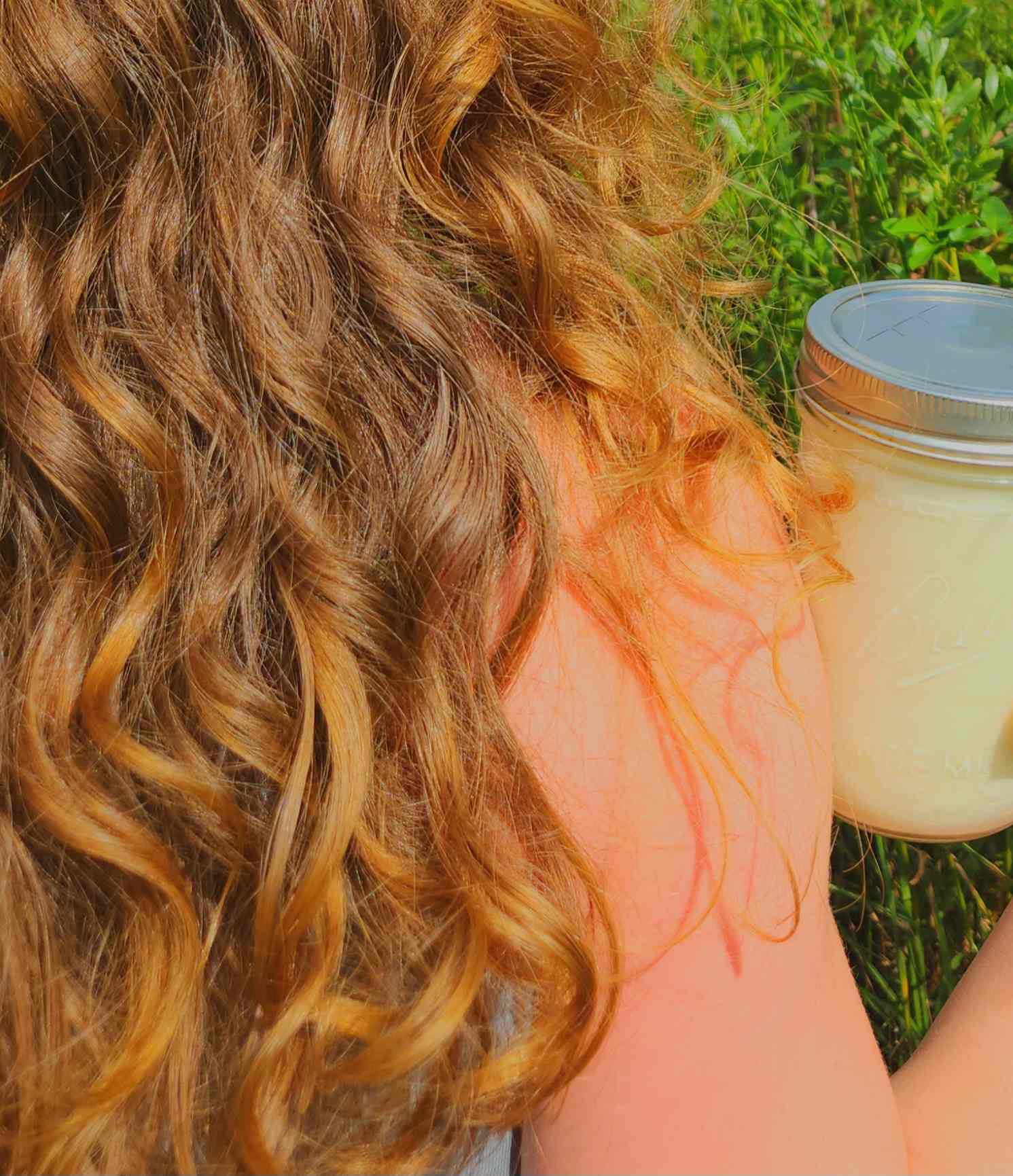Make Your Morning Coffee Adaptogenic with Ashwagandha

Ashwagandha is an amazing adaptogen that has been used for thousands of years in traditional Ayurvedic medicine, and has many proven health benefits. Adding ashwagandha to your morning coffee is the perfect way to improve energy, mental clarity and endurance while protecting your stress response and nervous system – along with so many more health benefits.
Why Add Ashwagandha to Coffee?
Because of the effect ashwagandha has on cognitive function, ashwagandha added to a healthy coffee drink makes the best coffee for studying or focusing for an extended period of time. Learn how to optimize your morning cup of joe and turn an everyday drink into a powerful medicine!
What is an Adaptogenic Herb?
An herbal adaptogen is a medicinal plant that helps the body stay at homeostasis by regulating the stress response. Adaptogens aid the body’s nervous system and reduces fatigue, depression and anxiety. They improve endurance and mental clarity as well as other positive effects.
What is Ashwagandha?
- Also known as Withania Somnifera or Indian Ginseng, ashwagandha has been used in Ayurveda (traditional Indian medicine) for over 6000 years. It is a powerful herb that has been historically used as a nervous system medicine, being traditionally known to increase health, happiness and youthfulness.
- In a swimming study with rats, ashwagandha was found to nearly double the swimming endurance time! This has a lot to do with how it helps to balance absorbic acid and cortisol levels, which reduces the incidence of adrenal fatigue. This makes ashwagandha very beneficial for conditions like chronic stress.
- Long term ashwagandha treatment has proven to reduce or resolve tumors including benign tumors of the uterus and skin. It has anti-cancer properties, and can be used to help cope with side effects from western medicine cancer treatment. It aids in brain function and memory, helps dendrites of nerves form, and can even help to reverse neuro-degenerative diseases!
- It is beneficial for the immune system, the health of mitochondria, energy levels, physical stress, has anti-inflammatory and antioxidant compounds, and is very helpful for mental stress levels or anxiety.
The Perfect Combo: Ashwagandha and Coffee
The effects of ashwagandha powder combined with a healthy coffee create the perfect balance, making it the best coffee for studying, working, or focusing because of the improved mental clarity it can provide.
I have added ashwagandha coffee to my daily routine and have already noticed amazing benefits!
Now that we’ve discussed some amazing reasons people should include ashwagandha in their morning routines, let’s talk about what I mean by “healthy coffee”:
What is Healthy Coffee?

I have always gone back and forth between being a daily coffee drinker and avoiding it. I’ve been through many phases of quitting coffee for a while because of an effect it had on me.
Not only that – although I loved the energy boost it gave me, I would start to get really anxious and jittery by about midday. Once brand of coffee gave me such a dizziness and brain fog, I could barely function!
After learning and implementing a few things, I now enjoy a delicious cup of coffee in the morning without the jitters, brain fog or excessive sweating. I can reap all of the health benefits of coffee without the negative effects of most commercially available brands.
Here are some tips so you can too!
Most Coffee Brands are Probably Contaminated
First of all, if you aren’t buying organic coffee it will have pesticide residue. Pesticides are toxic and can lead to many pathological health conditions.
But come to find out – pesticides aren’t the only toxins found in most coffee beans.
Because of their acidity level and the warm, humid climate they are often grown in – coffee beans are prime real estate for particular types of mold that produce toxins. Toxins made by fungi or mold are called mycotoxins, and one particular mycotoxin the mold on coffee beans can create is called Ochratoxin A. This mycotoxin is known to cause oxidative stress and have a negative effect on the function of mitochondria. It can also have a negative effect on the immune system, can cause problems like brain fog or dizziness, and in large amounts can be carcinogenic. Check out this post to learn more about coffee toxins.
If you are drinking one or multiple cups per day, think about how much you are consuming consistently over time!
The good news is – there are coffee bean companies that have their beans lab tested to be free of these toxins.
The brand I buy is called Purity Coffee. I am a coffee snob and I was thinking it wouldn’t taste as good as the fancy brands I was buying, but it turns out it is amazing tasting too! They also roast their beans in a way that best preserves the antioxidants and reduces acrylamide, which is a carcinogenic compound found in roasted coffee.
Now that you have high quality, mycotoxin free coffee…
More Ways to Make Coffee Healthier
- Wait after waking up: it’s best to wait about an hour or two after waking up to enjoy your cup of coffee. With cortisol levels at their peak in the morning, adding the potential cortisol spike from caffeine first thing in the morning on top of already high cortisol may not be ideal for your health. Don’t rely on coffee to “wake up”, rely on the sun to do that- our natural alarm that controls our circadian rhythm! Try watching the sunrise every day for a week and see how you feel- it changed my life!
- Eat something: drinking coffee on an empty stomach, first thing in the morning can have a negative effect on your natural hormone cycles and blood sugar. When having caffeine after something to eat, it doesn’t spike blood sugar in the same way that it does on an empty stomach. That being said, a better way to drink coffee is after a snack or breakfast.
Once you are having coffee in a more beneficial way (toxin and pesticide free, a couple of hours after you wake up, and after something to eat) you can reap the health benefits of coffee.
Health Benefits of Coffee
Some health benefits of coffee include antioxidants, phenolic compounds which are oxidative stress protectors, lowered risk of diabetes, lowered risk of neurological disease and depression, and liver support. To turn your coffee into something even more beneficial, add herbal adaptogens like ashwagandha!
Even though coffee can be a nutritious drink, some people may still not metabolize caffeine well, in which case caffeine could have a negative affect on blood pressure and other processes. In this case, stick to non caffeinated alternatives like mold free decaf coffee or an herbal coffee alternative.
How to Make Adapotogen Coffee
Different people enjoy different things.
- My personal preference for a morning coffee is a shot of espresso with a teaspoon of ashwaganda powder and frothed, warm raw milk (cortado or cappuccino style).
- Here are some other delicious ideas for coffee drinkers: plain black coffee, pour-over, cold brew, iced coffee, blended coffee with ice and heavy cream, or even a shot of espresso with a scoop of ice cream!
For all of these coffee options I recommend simply adding 1 teaspoon of ashwagandha powder to make your coffee adaptogenic.
Don’t drink coffee? Other Options for a Morning Ashwagandha Latte
- An herbal coffee alternative: There are many chicory root or mushroom based coffee alternatives. I have tried many different ones, and I really enjoy Dandy Blend.
- Golden milk – this is an energizing ginger, spice and turmeric latte. I enjoy mine with warm raw milk and a little maple syrup.
- Herbal tea- you can make an herbal latte by adding frothed milk to your herbal tea! I like mine with a little local raw honey. I enjoy nettle tea, or chamomile in the evening for good sleep.
Just add 1 teaspoon of ashwagandha powder to your drink and stir!
Dairy Free?
If you are dairy free, a healthy plant based milk alternative would be an organic, thickener-free coconut milk. Many dairy free milks are not very healthy like they are marketed to be. If you can tolerate raw cow or goat milk, I highly recommend it for all of the health benefits! See this post to learn more about raw milk.
What Kind of Ashwagandha to Use?
Having a powder form of ashwagandha makes it easy to add to any drink, and it has a very mild flavor so it doesn’t affect the quality of your favorite drinks. Being picky about my coffee, I was surprised to find that it didn’t affect the taste at all!
I’m so glad I can drink coffee without all of the side effects, while having a wonderful herb like ashwagandha!
After giving ashwaganda a try, let me know some of your favorite ways to enjoy it in a morning beverage in the comments!
Shop This Post
My favorite mycotoxin free coffee beans
Decaf Mycotoxin free coffee beans
My favorite Ashwagandha powder
*As an Amazon associate, I earn from qualifying purchases
*This is not medical advice
*None of these statements have been evaluated by the FDA
Sources
Learn more about ashwagandha here
Learn more about coffee bean mycotoxins here
Learn more about the health benefits of coffee here






